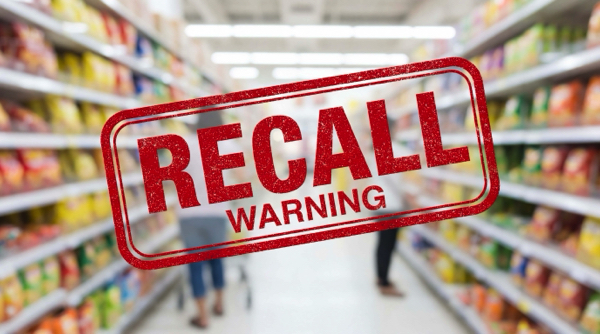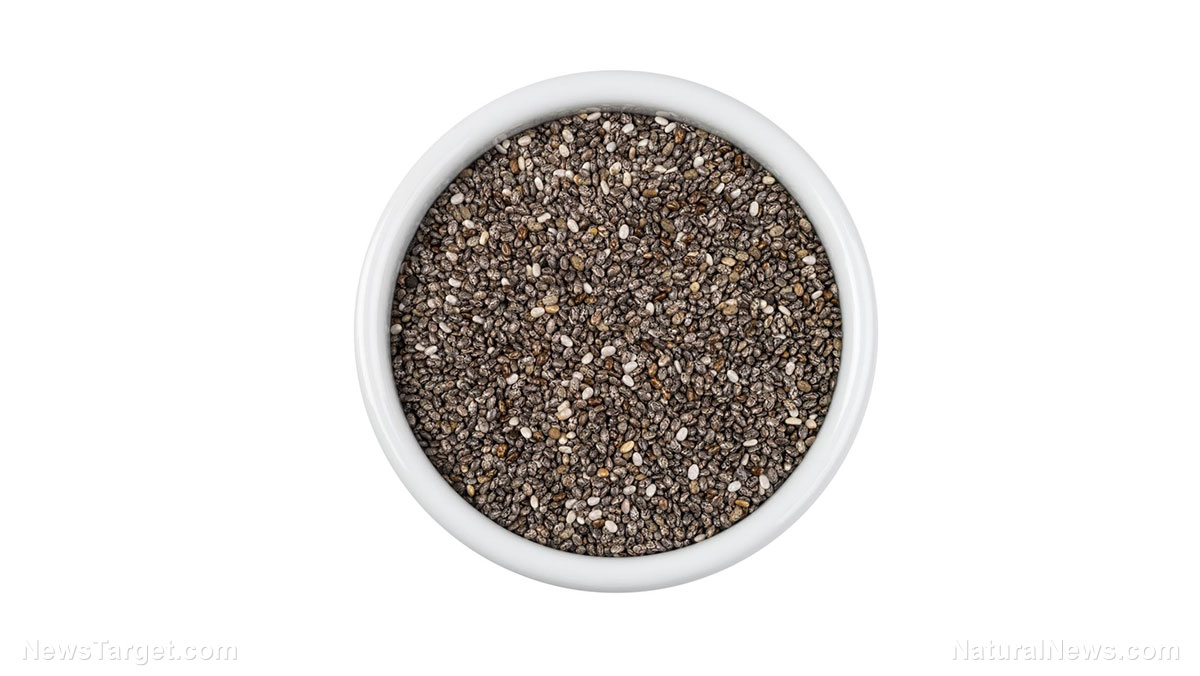© Brighteon.com All Rights Reserved. All content posted on this site is commentary or opinion and is protected under Free Speech. Brighteon is not responsible for comments and content uploaded by our users.
Dr. Myers on impact of plastic additives on health of future generation | Plastic Health Summit 2019
172 followers
Follow
0
Share
Report
81 views • 12/23/2021
https://articles.mercola.com/sites/articles/archive/2021/12/22/plastic-effects-human-health.aspx
https://www.youtube.com/watch?v=OifnPOAolLw&;t=156s
How Do We Stop Our Dangerous Addiction to Plastic?
A number of chemicals found in plastic products are known to act as endocrine disruptors. Some of the most pervasive and well-known include phthalates and bisphenol A (BPA)
As the harms of BPA have become more widely known, many companies have started replacing it with other chemicals. However, these replacement chemicals also have no safety record, and as time goes on, we’re finding they’re just as hazardous as BPA
A study showed that 97.5% of children and adolescents had detectable levels of BPA in their urine; 87.8% had BPS; and 55.2% had BPF. All three chemicals correlated with an increased risk for obesity, even after the researchers controlled for caloric intake
A scientific review found BPB has endocrine disruptive effects; it affected reproductive function, damaging sperm and lowering egg production, lowered testosterone production and had estrogenic activity, “similar to or greater than BPA”
For the second year in a row, The Coca-Cola Co. was found to be the most polluting brand in a global audit of plastic trash. Coca-Cola is responsible for more plastic litter than the next top three polluters combined
This article was previously published November 5, 2019, and has been updated with new information.
A number of chemicals found in plastic products are known to act as endocrine disruptors. Some of the most pervasive and well-known include phthalates and bisphenol A (BPA). Being similar in structure to natural sex hormones, these chemicals interfere with the normal functioning of those hormones.
This is particularly problematic in children who are still growing and developing, as the glands of your endocrine system and the hormones they release influence almost every cell, organ and function of your body.
Your endocrine system as a whole is instrumental in regulating mood, growth and development, tissue function and metabolism, as well as sexual function and reproductive processes. And, endocrine-disrupting chemicals have in fact been linked to a number of reproductive health problems.
In the video1 above, Pete Myers,2 Ph.D., an adjunct professor of chemistry at Carnegie Mellon University and founder, CEO and chief scientist of Environmental Health Sciences, talks about what we know about plastic chemicals and their impact on the human endocrine system.
According to Myers, there's evidence plastic chemicals are harming the health of future generations through intergenerational endocrine disruption, so clearly, this is no small concern.
Interestingly, Myers attributes the premature birth of his own granddaughter to wildfires that took place in the months before the delivery in the area where his daughter lived. As reported by Environmental Health News:3
"Many homes, full of plastics, burned during the fire, releasing contaminants such as bisphenol-A (BPA) and phthalates that are linked to the 'very condition that forced that premature birth,' [Myers] said."
Myers also points out that no plastic in existence has ever been thoroughly tested for safety, and that the testing that is used is based on "16th century principles."
To address the known and unknown harms of plastics, Myers is calling for redesign to make sure the plastic is nontoxic, and regulatory reform to account for the fact that even low doses may cause harm.
Health Effects Associated With Phthalates and BPA
Phthalate exposure has been linked to a wide range of health problems, including but not limited to:
Birth defects4 and miscarriage5
Low sperm count6,7
Polycystic ovary disease8
Early or delayed puberty9
Autistic behavior,10 reduced IQ and impaired brain function in children11
Also...
BPA Substitutes Are Just as Hazardous
We're Drowning in Plastic Waste Unnecessarily
Coca-Cola Named 'Most Polluting Brand'
Coca-Cola Undermines Recycling Efforts
Bottle Deposit Laws Improve Recycling Rates
Coca-Cola Caught Weakening Zero Waste Message
Plastic Pollution Affects Entire Food Chain
How to Reduce Your Plastic Exposure
https://www.youtube.com/watch?v=OifnPOAolLw&;t=156s
How Do We Stop Our Dangerous Addiction to Plastic?
A number of chemicals found in plastic products are known to act as endocrine disruptors. Some of the most pervasive and well-known include phthalates and bisphenol A (BPA)
As the harms of BPA have become more widely known, many companies have started replacing it with other chemicals. However, these replacement chemicals also have no safety record, and as time goes on, we’re finding they’re just as hazardous as BPA
A study showed that 97.5% of children and adolescents had detectable levels of BPA in their urine; 87.8% had BPS; and 55.2% had BPF. All three chemicals correlated with an increased risk for obesity, even after the researchers controlled for caloric intake
A scientific review found BPB has endocrine disruptive effects; it affected reproductive function, damaging sperm and lowering egg production, lowered testosterone production and had estrogenic activity, “similar to or greater than BPA”
For the second year in a row, The Coca-Cola Co. was found to be the most polluting brand in a global audit of plastic trash. Coca-Cola is responsible for more plastic litter than the next top three polluters combined
This article was previously published November 5, 2019, and has been updated with new information.
A number of chemicals found in plastic products are known to act as endocrine disruptors. Some of the most pervasive and well-known include phthalates and bisphenol A (BPA). Being similar in structure to natural sex hormones, these chemicals interfere with the normal functioning of those hormones.
This is particularly problematic in children who are still growing and developing, as the glands of your endocrine system and the hormones they release influence almost every cell, organ and function of your body.
Your endocrine system as a whole is instrumental in regulating mood, growth and development, tissue function and metabolism, as well as sexual function and reproductive processes. And, endocrine-disrupting chemicals have in fact been linked to a number of reproductive health problems.
In the video1 above, Pete Myers,2 Ph.D., an adjunct professor of chemistry at Carnegie Mellon University and founder, CEO and chief scientist of Environmental Health Sciences, talks about what we know about plastic chemicals and their impact on the human endocrine system.
According to Myers, there's evidence plastic chemicals are harming the health of future generations through intergenerational endocrine disruption, so clearly, this is no small concern.
Interestingly, Myers attributes the premature birth of his own granddaughter to wildfires that took place in the months before the delivery in the area where his daughter lived. As reported by Environmental Health News:3
"Many homes, full of plastics, burned during the fire, releasing contaminants such as bisphenol-A (BPA) and phthalates that are linked to the 'very condition that forced that premature birth,' [Myers] said."
Myers also points out that no plastic in existence has ever been thoroughly tested for safety, and that the testing that is used is based on "16th century principles."
To address the known and unknown harms of plastics, Myers is calling for redesign to make sure the plastic is nontoxic, and regulatory reform to account for the fact that even low doses may cause harm.
Health Effects Associated With Phthalates and BPA
Phthalate exposure has been linked to a wide range of health problems, including but not limited to:
Birth defects4 and miscarriage5
Low sperm count6,7
Polycystic ovary disease8
Early or delayed puberty9
Autistic behavior,10 reduced IQ and impaired brain function in children11
Also...
BPA Substitutes Are Just as Hazardous
We're Drowning in Plastic Waste Unnecessarily
Coca-Cola Named 'Most Polluting Brand'
Coca-Cola Undermines Recycling Efforts
Bottle Deposit Laws Improve Recycling Rates
Coca-Cola Caught Weakening Zero Waste Message
Plastic Pollution Affects Entire Food Chain
How to Reduce Your Plastic Exposure
Keywords
FREE email alerts of the most important BANNED videos in the world
Get FREE email alerts of the most important BANNED videos in the world that are usually blacklisted by YouTube, Facebook, Google, Twitter and Vimeo. Watch documentaries the techno-fascists don't want you to know even exist. Join the free Brighteon email newsletter. Unsubscribe at any time. 100% privacy protected.
Your privacy is protected. Subscription confirmation required.





